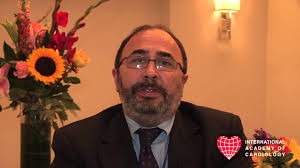25 Sep Taking Blood Pressure Meds At Night Decreases Diabetes Risk
 MedicalResearch.com Interview with:
MedicalResearch.com Interview with:
Ramon C. Hermida Dominguez, Ph.D.
Director, Bioengineering & Chronobiology Labs.
Campus Universitario
Vigo, Pontevedra
Medical Research: What is the background for this study? What are the main findings?
Dr. Hermida Dominguez: Independent studies have shown that the asleep blood pressure (BP) mean is abetter predictor of cardiovascular risk than clinic BP or the awake blood pressure mean derived from ambulatory BP monitoring. Moreover, sleep-time hypertension is highly prevalent among patients with type 2 diabetes. In the first manuscript we tested two novel hypotheses:
(i) whether sleep-time BP is a prognostic marker for future development of diabetes; and (ii) whether progressive reduction of sleep-time blood pressure actually reduces the risk of developing diabetes.
The main findings indicate that sleep-time blood pressure is indeed a highly significant prognostic marker for new-onset diabetes, while clinic blood pressure measurements are not. Most important from the therapeutic point of view, the results from our prospective study also indicate lowering asleep blood pressure could indeed be a significant method for reducing the risk of developing diabetes.
On the other hand, multiple clinical trials have shown that bedtime ingestion of hypertension medications of several classes is associated with improved blood pressure measurements control and increased efficacy in lowering asleep BP. In the second manuscript we investigated whether therapy with the entire daily dose of one or more antihypertensive medications at bedtime exerts better reduction in the risk of developing diabetes than ingesting all medications in the morning upon awakening. The results from this randomized clinical trial indicate a significant 57% decrease in the risk of developing diabetes in the bedtime compared to the awakening treatment regimen.
 Medical Research: What should clinicians and patients take away from your report?
Medical Research: What should clinicians and patients take away from your report?
Dr. Hermida Dominguez: The studies first corroborate the need of ambulatory blood pressure measurements monitoring for proper diagnosis of hypertension, quantification of cardiovascular risk, and, within this context, evaluation of the individual’s risk of developing diabetes, rendering ambulatory blood pressure measurements a cost-effective technique that should be recommended in all adults, as recently proposed by the US Preventive Services Task Force.
Second, the study documents for the first time that asleep blood pressure measurements is a novel therapeutic target, not only for reducing cardiovascular risk, but also to diminish the risk of developing diabetes.
Finally, in patients with hypertension proper asleep blood pressure measurements control and subsequent reduction of the risk of diabetes can be best achieved by the simple no-cost approach of ingesting the prescribed hypertension treatment at bedtime.
Medical Research: What recommendations do you have for future research as a result of this study?
Dr. Hermida Dominguez: Being the first prospective trial documenting all results described above, these require further corroboration from properly designed prospective trials. Along these lines, the ongoing Hygia Project entailing 40 clinical sites in Galicia (Northwest Spain) and 292 investigators, under the coordination of our group at the University of Vigo, has already recruited over 18,000 patients who undergo periodic evaluation by ambulatory blood pressure monitoring. Data from this huge trial will eventually allow to corroborate the findings described in the two manuscripts now published at Diabetologia.
Citations:
Bedtime ingestion of hypertension medications reduces the risk of new-onset type 2 diabetes: a randomised controlled trial
Sleep-time BP: prognostic marker of type 2 diabetes and therapeutic target for prevention
Hermida R. C., et al “Sleep-time BP: prognostic marker of type 2 diabetes and therapeutic target for prevention” Diabetologia 2015; DOI: 10.1007/s00125-015-3748-8.
[wysija_form id=”5″]
MedicalResearch.com is not a forum for the exchange of personal medical information, advice or the promotion of self-destructive behavior (e.g., eating disorders, suicide). While you may freely discuss your troubles, you should not look to the Website for information or advice on such topics. Instead, we recommend that you talk in person with a trusted medical professional.
The information on MedicalResearch.com is provided for educational purposes only, and is in no way intended to diagnose, cure, or treat any medical or other condition. Always seek the advice of your physician or other qualified health and ask your doctor any questions you may have regarding a medical condition. In addition to all other limitations and disclaimers in this agreement, service provider and its third party providers disclaim any liability or loss in connection with the content provided on this website.
Ramon C. Hermida Dominguez, Ph.D. (2015). Taking Blood Pressure Meds At Night Decreases Diabetes Risk
Last Updated on September 25, 2015 by Marie Benz MD FAAD
